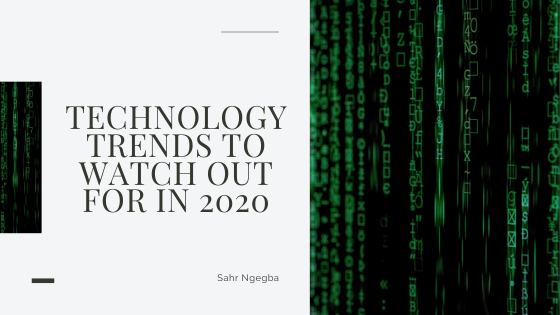As 2020 gets to a dramatic start, the tech world is full of expected advancements and opportunities for growth. Virtual Reality (VR), data privacy, tech security, and 5G are all topics that have been at the forefront for a few years, and will either deliver new versions or continue the same importance in 2020.
Here are two trends to keep an eye on as you position yourself for a positive, efficient 2020 in tech.
Multi-Experience Design, Programming, and Marketing
The past decade has seen massive leaps in old concepts and the introduction of new ideas. Virtual Reality is finally here to stay. After years of prohibitively expensive and often overwhelming visuals, VR is now affordable and with applications that even average non-tech people can appreciate.
From virtual real estate tours with interactive, update-able images to games that take the world close to Neuromancer, .hack//SIGN, Otherland, and Sword Art Online, building and using virtual worlds is getting easier.
The hurdle has always been about creating a believable, entertaining, or useful environment. While there are many debates about which is more important or which has made the biggest impact, current VR technology has already exceeded most benchmarks of the past decade.
At the same time, VR isn’t what everyone needs and related technology has proven more useful than VR at its current point. Augmented Reality (AR) allows images and text to appear over the real world.
AR overlays allow doctors to see textbook documentation for patients or even see notes about current conditions for the person in front of them. In the metadata world–data about data–cataloging the world to allow small information popups is close.
Both of these technologies are improving industries and building new industries. Using VR and AR demos to promote existing products is just the start.
Marketing teams can make advertising easier by placing their products in less intrusive, but even more enticing areas–for better or worse. Planning almost anything in both VR and AR can make the process easier and safer.
It’s never about replacement, but enhancement. That said, replacing a bit of real life risk for alternate reality fantasy adventure won’t hurt. Throw in business efficiency and scientific discovery and the future of multi-experience is here.
Transparency, Traceability, and Front-Facing Data-Sharing
The European Union’s General Data Protection Regulation (GDPR) has taken the lead for personal data management.
More people are more concerned about–if not directly engaged in–their data’s security and use. It’s not just about an icky feeling when a marketer sells your preferences; leaked information makes it easier to commit fraud in your name.
Even though GDPR is an EU regulation, business is global and most tech companies have to deal with a mixture of users that often include EU citizens. Companies that didn’t have many EU clients still had reasons to comply.
Although some parts of the GDPR may seem heavy-handed in some places while simultaneously week or missing the point in others, it’s a solid model for privacy legislation. If you’re not required to follow GDPR, you’ll have to follow something similar soon.
Tech businesses will move to make their businesses more agile, more secure, and more in line with personal data security now before it becomes a major liability. Beyond government regulation, citizens who appreciate extra care are an opportunity.
Businesses that not only show how they’re aware of data concerns, but use modern techniques to ensure data privacy comfort will win loyalty in the coming years.

